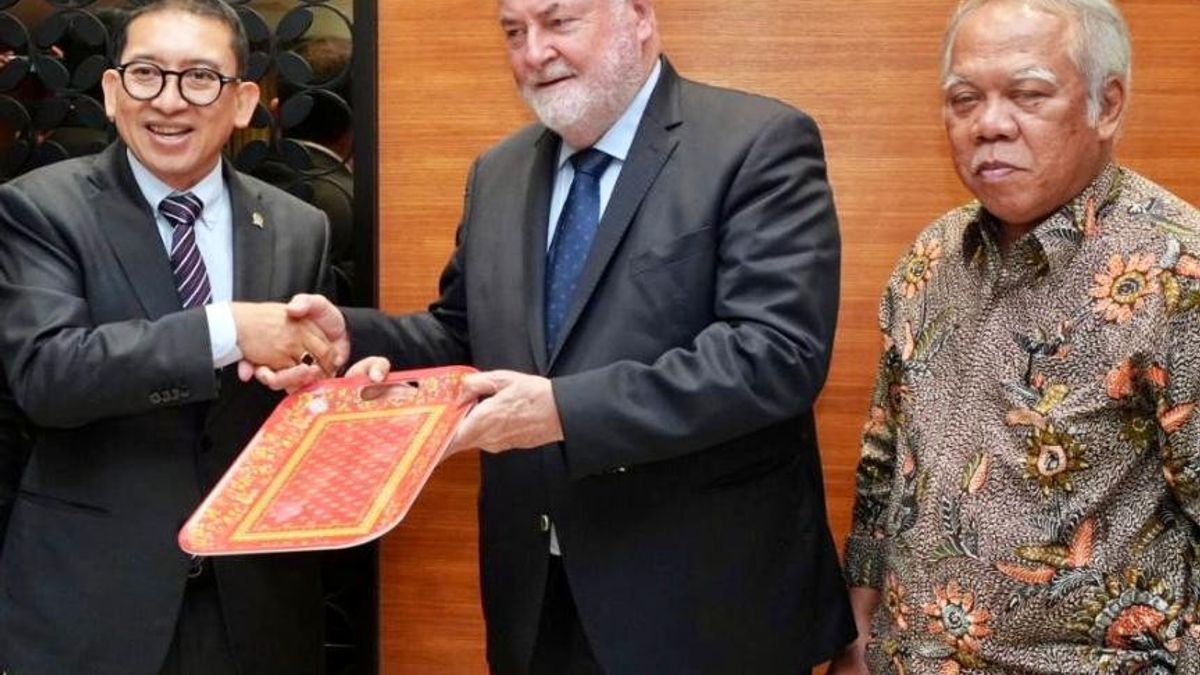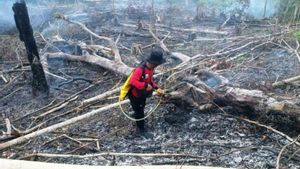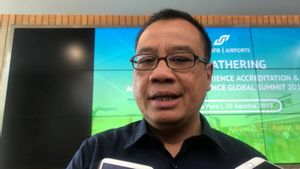JAKARTA - The General Chairperson of the HKTI DPN, Fadli Zon, said the need for global awareness regarding the importance of water management wisely amid the threat of a world water crisis.
"Clean water crisis has indeed become a real threat, not only to Indonesia, but also to the world," said Fadli in commemoration of World Food Day which is celebrated every October 16, Monday, October 16.
For the record, the United Nations projects that the water crisis will hit the whole world in 2025. This of course must be watched out for by all of us.
Water scarcity is a real impact of climate change, continued increasing population growth rate, and due to human activity. If so far many people think that the issue of climate change is very abstract, then water scarcity is a major blow to all.
By 2030, it is estimated that global freshwater demand will increase 40 percent higher than it is today. "To meet these needs, we need to be responsive. One of them is to raise awareness about the importance of water security issues."
So, at the commemoration of World Food Day this year, there are two crucial issues that meet, namely the issue of food security and also water security. This shows that the issue of food and water is like two sides of the currency. Both cannot be separated.
Incidentally, Indonesia will host the 10th World Water Forum in May 2024. The theme of the activity is Water for shared Prosperity. The issue of water is a significant and crucial issue for the global community. This urgency has also increased and is recognized by world leaders with the inclusion of water and sanitation issues) as its own goal in SDGs through Goal 6. The issue of SDG 6 is also discussed in-depth review at the UN High Level Political Forum (HLPF) on Sustainable Development in 2023. HLPF is the existing global mechanism for reviewing the implementation of SDGs.
"I met and discussed with the President of the World Water Council on October 10, emphasizing the involvement of parliament and civil society such as the Indonesian Farmers Harmony Association (HKTI) in the Air Forum next year," he said.
These two moments should make all parties aware of how crucial and urgent the issue of food and water is. The government needs to design policies based on knowledge, data, innovation, and multi-party cooperation to address this issue. The government needs to immediately educate farmers about the importance of managing and using water efficiently.
Especially now facing the phenomenon of el nino, where the dry season will last longer and longer than in previous years. This phenomenon adds to the threat to Indonesia's food security. "From the data I have, el nino is recorded to have reduced our rice production by 1-5 million tons since 1990-2020," he explained.
According to data from the Central Statistics Agency (BPS), the realization of rice production in February and March 2023 was 2.8 million tons and 5 million tons, or lower than the previous projection which was set at 3.6 million tons and 5 million tons. The decline in the realization of this production could not be separated due to el nino.
Because the impact of climate change such as el nino is global, this decline in production is not only experienced by Indonesia, but also by other countries. As a result, many countries that have been known as rice producers have now limited, even banned rice exports altogether. "This will certainly be a problem for us, because so far we still need imports to meet the needs of domestic rice demand."
SEE ALSO:
The recent global rice market has experienced significant turbulence, especially since India, the world's leading rice exporter, began implementing a series of export restrictions in July, including a ban on white rice milling exports. India's dominance as the lowest-price white rice supplier, particularly to Sub-Sahara Africa since 2020, has raised concerns about the potential impact of the much higher rice price in this import-dependent region.
"These problems cannot be solved by the government only with short-term policies. There must be a long-term strategic policy to overcome these food and water problems. Otherwise, we will face a food and water crisis at once," he concluded.
The English, Chinese, Japanese, Arabic, and French versions are automatically generated by the AI. So there may still be inaccuracies in translating, please always see Indonesian as our main language. (system supported by DigitalSiber.id)


















